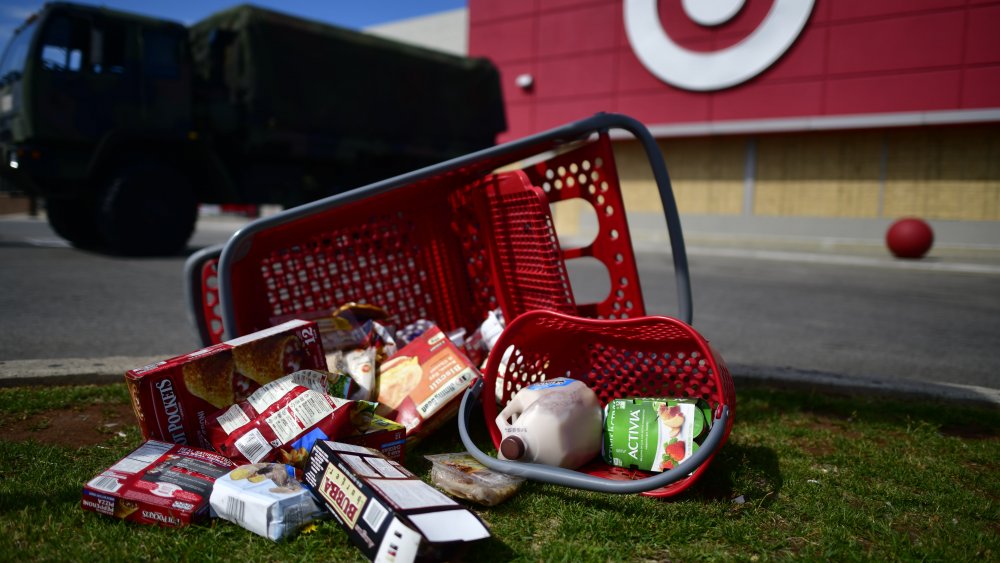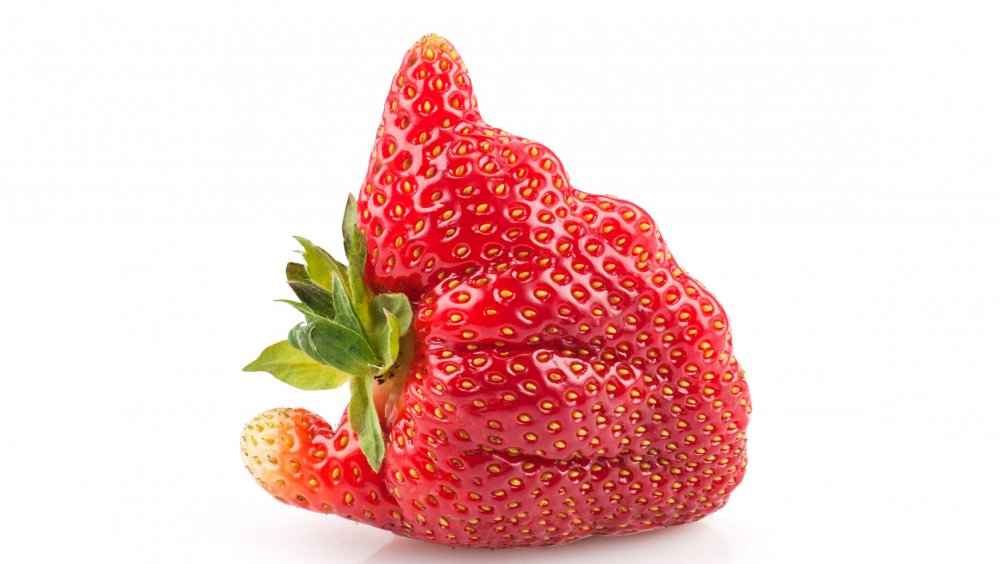Why You Should Never Buy Fresh Produce At Target
In June, Target announced its plans to offer curb-site pick-up for fresh groceries. However, the offering was limited to 750 items from produce, meat, and other essentials because, as a spokesperson told TechCrunch, "The company found that Target shoppers largely used pickup to shop for grocery essentials in between larger trips to the store." The fact that most buy their groceries elsewhere is indicative of the issues Target's had selling groceries.
The problem is that Target's selection's too small, too expensive, and too low quality when most consumers can find a local store that cuts out the national-sized Minnesotan middleman. Despite grocery expansions being noted nine years ago by The East Valley Tribune and executives saying in 2017 that they expected fresh vegetables and fruits to play a major role in Target's future, as Produce Retailer reported, a Consumer Report survey from last year still received responses that lumped Target and Walmart together with "lowest marks in produce quality."
The lack of reasons to buy produce from Target is highlighted by an answer given to Business Insider by All Things Target's founder Christy Palmer: "I prefer to buy my fresh produce at a grocery store that offers local produce or even at a local produce stand. The selection at my store isn't big enough to do all of my produce shopping, so I do it elsewhere." If the person who scours Target for good deals and clearances declares that she never buys Target's produce, then something's wrong.
An ugly side to the problem
One solution to Target's flailing business practice of buying fresh produce that no shoppers buy because they can get it better elsewhere was given by Jordan Figueiredo, a food waste activist who has pushed Walmart and Whole Foods to include "ugly produce" as an option in their stores. Ugly produce is – well – produce that, like the strawberry above, hasn't grown according to the idealized form that informs our imagined food but is perfectly edible. But since it looks ugly, stores – especially chain stores – don't buy them, meaning some will end up in processed products, like jam, while others will contribute to the food waste that the FDA estimates to take up between 30 and 40 percent of our food supply.
Selling ugly produce, however, is cost-effective, as the Huffington Post pointed out in 2016 because you could sell them at a cheaper price. As Jordan Figueiredo says in a separate column for the Huffington Post, "Target's slogan is 'Expect More, Pay Less.'" And, the retailer says it listens to its customers. Let's now give Target a clear message that we want it to do something simple, effective, and good for the retailers' and customers' bottom line." Target can't sell mediocre produce at a too-high price, but they could sell perfectly good discarded produce at a price affordable for their customers. However, four years have passed, and Target is still a poor place for produce.

